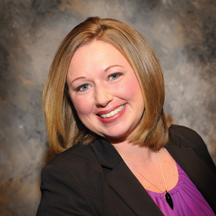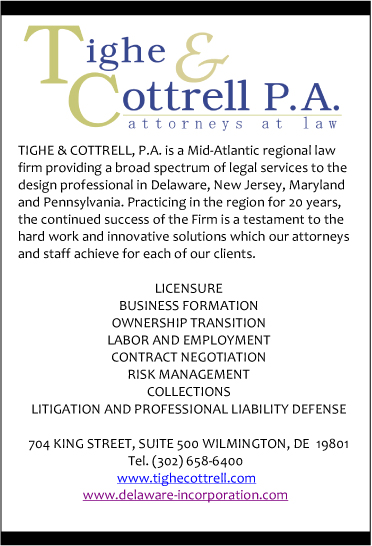Ensuring the Survival of Your Business: Practice Continuation Agreements
 By Melissa L. Rhoads, Esq.
By Melissa L. Rhoads, Esq.Since this issue of The Women’s Journal will be available to readers in April— tax season— I am focusing this article on sole practitioners in the accounting field. However, the information that follows is not limited to accountants. Practice Continuation Agreements can be used in many different fields to protect the sole practitioner. As a sole practitioner, your business is one of your most valuable assets. Do you have a plan in place to protect it in the event of your untimely death or disability? If tragedy should strike, a practice continuation agreement will help you protect your business, the interests of your clients, and the financial stability of you and your family. It can even be used as a retirement tool.
With this in mind, every sole practitioner should have a practice continuation agreement as a part of their personal financial plan.
Life is unpredictable and rarely do problems occur at a convenient time, when accountants have unlimited time to resolve them. But what if the problem is with the sole practitioner accountant, who is unable to tend to clients because of an accident, serious illness, or some other unforeseeable circumstance? Busy season waits for no practitioner and April 15th is tax day regardless of an accountant’s plight. Because of the volatile nature of life, it is essential for accountants to have a plan in place which maintains the practice, assures the continuation of services to clients, and continues income to the surviving spouse and family should the unforeseeable occur. Practice Continuation Agreements provide the hedging necessary to protect the accountant, the business, and clients.
A Practice Continuation Agreement is a “just-in-case” legally binding agreement with another accountant or group of accountants which provides for back-up and support in times of difficult circumstances, most often disability or death. Generally, Practice Continuation Agreements are set up so that they are triggered by one of three events: temporary disability (illness or disability which lasts less than six months), permanent disability, or death. Retirement can also be included if desired, on either an immediate or phase-out basis.
Finding a good successor is as important as finding a good employee. It is imperative that an accountant interview prospective “partners” to assure that the individual chosen maintains the same practice philosophies, quality and control mechanisms, and level of integrity associated with the accountant’s business.
Generally, most accountants choose between entering into a Partnership Continuation Agreement with either an internal employee or another firm or professional. Each approach has its fair share of pros and cons. The benefits of turning to an internal person include greater continuity for clients and staff and a means of securing the future of a key staff person with the firm. However, lack of previous experience or an unwillingness of remaining employees to train someone new may be cause for concern. Typically, accountants who turn to another firm to take over their practice do so because there is more talent of the type required in the competitor’s firm than in their own practice. This assures a greater sense of financial stability and security should incapacitation arise.
Regardless of who is chosen as a partner, it is imperative that the Partnership Continuation Agreement be as specific as possible with what is expected and required under the agreement. Most notably, the line should be clearly drawn between a temporary and permanent disability. In the event of a temporary disability, the Partnership Continuation Agreement should require the partner to provide employees to assist in the firm’s daily practice. The agreement should also negotiate a compensation arrangement for the assisting accountant. A firm in need should expect to pay an assisting accountant the standard fee charged to clients by the accountant’s firm. Once the owner is deemed permanently disabled or dies, the agreement should indicate with specificity the next step to be taken. In most situations, there is a buyout made by the partnering accountant with the former owner or the deceased owner’s estate. Buyout provisions usually call for an assessment of fair market value of the practice at the time of incapacity or death. Several factors contribute to the business valuation amount, including but not limited to, practice size by annual fee volume, historical net income generated by the practice, nature and type of practice involved, growth potential of the predecessor’s firm, and the agreed payout period.
Finally, in implementing a successful Practice Continuation Agreement, it is important to remember that keeping clients happy is the key to a successful practice. Holding true to this mantra, it is necessary to develop a business plan for both temporary and permanent takeover in tandem with drafting the agreement or before the agreement is drafted. As part of the plan, notifications to clients should be prearranged and agreed upon. Thus, in the event of crisis, all of the accountant’s ducks are seemingly in a row and the takeover, whether temporary or permanent, is as seamless as possible.
These issues are provided to serve as a few key suggestions (and not intended to be a comprehensive discussion). If you have any questions or concerns, please feel free to contact Melissa L. Rhoads, Esq. at (302) 658-6400 or [email protected]. Melissa L. Rhoads is an attorney at Tighe & Cottrell, P.A. at 704 King Street, Suite 500, Wilmington, Delaware 19899.


